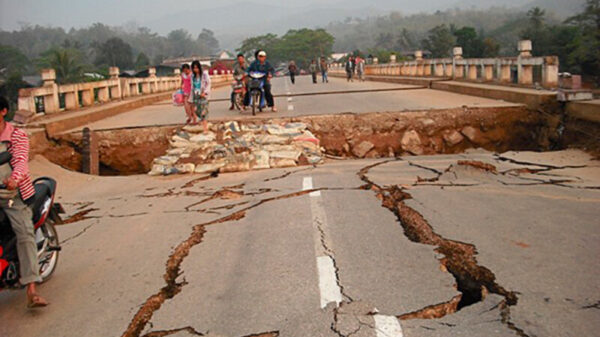Revised Economic Growth Projections and Underlying Factors
The World Bank has updated its global economic growth projection for 2024, revising it upward from 2.4% to 2.6%. This adjustment reflects a combination of favorable developments in key economic indicators, policy changes, and regional advancements. A notable improvement in global trade, driven by the gradual easing of supply chain disruptions and increased consumer demand, has played a significant role in this positive outlook. Additionally, supportive fiscal policies and targeted monetary interventions by major economies have fostered a more conducive environment for growth.
Regional developments also underpin the revised projections. Emerging markets, particularly in Asia and sub-Saharan Africa, have shown robust economic activities, bolstered by strong domestic consumption and infrastructure investments. Conversely, growth remains uneven, with advanced economies facing slower recoveries due to lingering inflationary pressures and geopolitical tensions.
The World Bank employs a systematic methodology in formulating these projections, utilizing comprehensive data from various national and international sources. Key economic indicators such as GDP growth rates, unemployment figures, investment trends, and inflation statistics are meticulously analyzed. Advanced econometric models, which incorporate both historical data and predictive analytics, enable the World Bank to generate reliable forecasts. This rigorous approach ensures that the projections are grounded in empirical evidence and reflect current global economic dynamics.
Despite the upward revision, the projected growth rate of 2.6% for 2024 remains below pre-pandemic levels, highlighting the challenges in achieving sustained economic recovery. Issues such as persistent supply chain bottlenecks, uneven vaccine distribution, and climate change-related disruptions continue to pose significant risks. Moreover, the recovery is not uniform across regions and sectors, with some areas experiencing more pronounced rebounds than others. This disparity underscores the importance of coordinated global efforts and targeted policy measures to address the underlying vulnerabilities and support inclusive growth.
Three Major Risks to Global Economic Growth
The World Bank has identified three significant risks that could impede global economic growth in 2024. First, geopolitical tensions remain a critical concern. Trade disputes, especially between major economies such as the United States and China, have the potential to disrupt global supply chains and increase market volatility. Conflicts in various regions, such as the ongoing crisis in Ukraine, can also lead to economic instability by affecting energy prices and investment flows. For instance, the World Bank notes that prolonged conflicts can lead to substantial economic losses, citing a study that estimates the economic cost of the Ukraine conflict at $1 trillion in lost output. Mitigation strategies recommended include diplomatic efforts to resolve disputes and policies aimed at diversifying trade partnerships to reduce dependency on any single market.
Secondly, inflationary pressures and monetary policy adjustments present a formidable challenge. Inflation, driven by factors such as rising commodity prices and supply chain disruptions, can erode purchasing power and stifle economic growth. In response, central banks may implement monetary tightening measures, such as raising interest rates, to control inflation. However, these measures can also restrain economic activity by increasing borrowing costs for businesses and consumers. The World Bank’s data indicates that a 1% increase in global interest rates could reduce global GDP growth by approximately 0.5%. To mitigate these risks, the World Bank suggests coordinated international monetary policies and fiscal measures to support economic resilience.
The third major risk is climate change and environmental sustainability. Extreme weather events, such as hurricanes, floods, and wildfires, can cause significant economic disruption and loss of life. The World Bank highlights that climate-related disasters have cost the global economy over $2.5 trillion in the past two decades. Additionally, the transition to green energy, while essential for long-term sustainability, may pose short-term economic challenges. Industries reliant on fossil fuels may face significant restructuring costs, and there could be job losses in traditional energy sectors. The World Bank recommends investing in climate-resilient infrastructure and promoting green technologies to mitigate these risks. Policies supporting a just transition for workers in affected industries are also crucial to ensure economic stability.




































